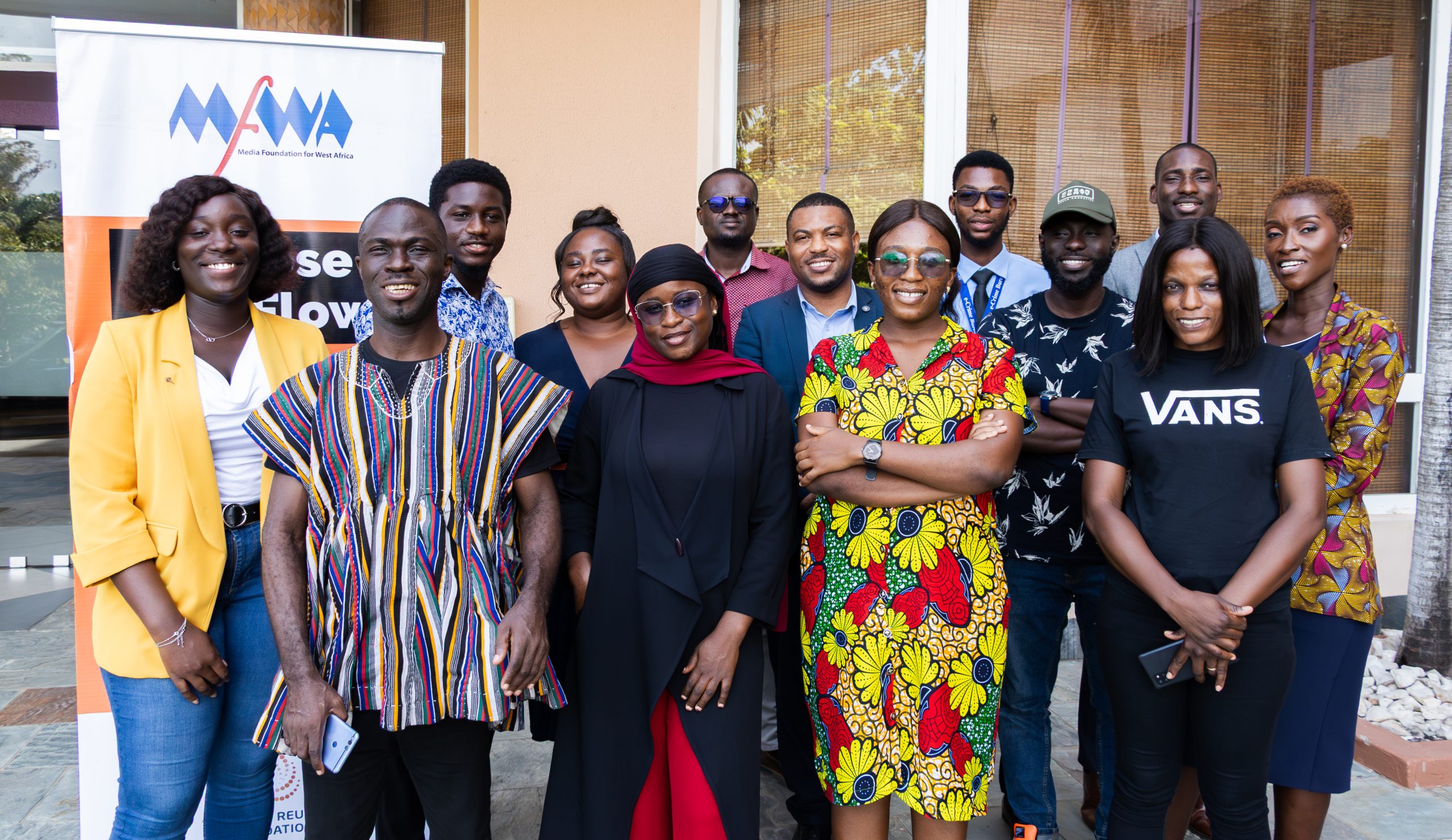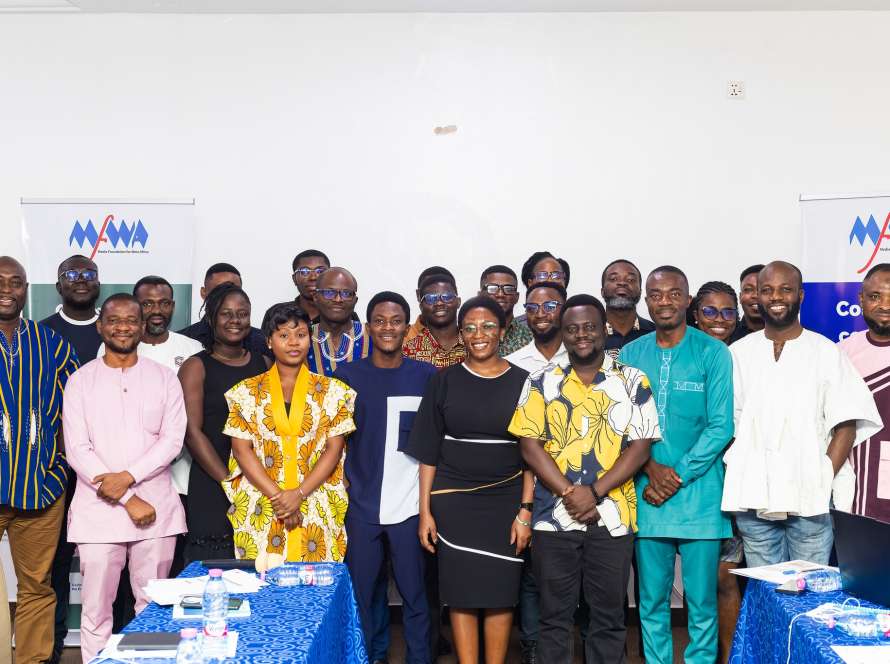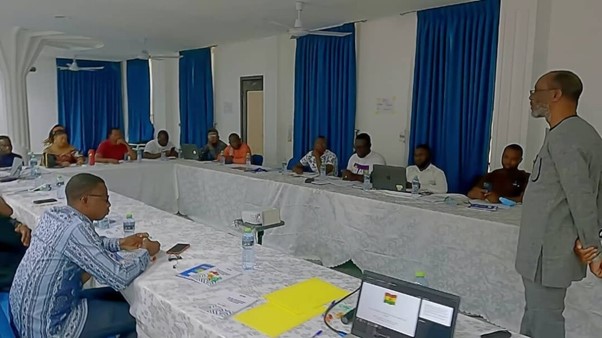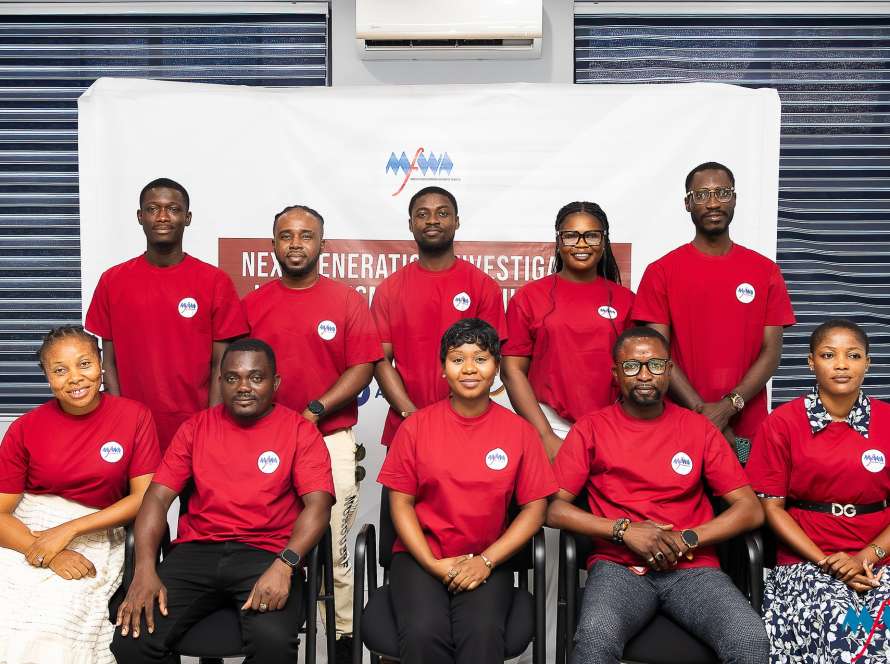Thirty journalists across Ghana, Kenya, and Tanzania have benefitted from a series of intensive physical and digital security trainings organised by the Media Foundation for West Africa (MFWA) as part of a regional project to curb Illicit Financial Flows (IFFs) in Sub-Saharan Africa.
The two-day workshops, held separately in Nairobi, Dar es Salaam, and Accra in May 2025, form part of the ongoing project titled Expose the Flow: Working together to curb IFFs in Sub-Saharan Africa supported by the Thomson Reuters Foundation (TRF). The project seeks to equip journalists, editors, and newsrooms with the knowledge, skills, and resources to produce impactful reports that expose illicit financial flows, tax manipulations, and gaps in taxation while raising public awareness and holding authorities accountable.
Against a backdrop of escalating threats to press freedom, the trainings addressed the growing risks journalists face while investigating sensitive financial and political issues. The sessions focused on enhancing both digital and physical safety, covering secure communications, data protection, risk assessment in the field, and protest coverage safety protocols.
Participants, selected from traditional and digital media, engaged in interactive sessions involving role plays, case studies, and hands-on simulations to identify and respond to physical and digital security threats.
In Kenya, the training brought together 10 female journalists at the Golden Tulip Hotel in Nairobi. Led by journalist and security expert Mary Kiio, the sessions covered digital hygiene, source safety, secure reporting techniques, and protest preparedness. Through group exercises and risk assessment drills, participants learned how to navigate threats both online and on the ground while covering IFFs and related topics.
Another 10 journalists in Tanzania were trained by Hassan Juma Mhelela, Digital Editor at Azam Media Group, at the Seashells Millennium Hotel in Dar es Salaam. His sessions tackled digital threats, surveillance avoidance, and risk planning, using real-life testimonies and scenario-based learning. Participants were also introduced to practical tools such as the “five-circle method” for situational awareness.
In Ghana, 10 journalists participated in sessions facilitated by experts from the e-Crime Bureau. Trainers Eric Kwaku Mensah and Godwin Setsoafia led modules on cyber threats, phishing, social engineering, and field safety, with an added focus on ethical considerations and trauma care. A knowledge assessment quiz concluded the training, reinforcing key takeaways on cybersecurity and emergency response.
Across all three countries, trainers highlighted the importance of strong password practices, use of secure apps like Signal, Tor, and DuckDuckGo, two-factor authentication, and virtual private networks (VPNs). Ethical source protection, communication safety, and fieldwork readiness, including attire, communication protocols, and psychological resilience, were also emphasised.
In his opening remarks, Paul Kofi Gozo, Programme Assistant for the Media and Democracy Programme at the MFWA, underscored the importance of the training. “I’ve realised that most journalists often neglect their physical and digital security in their bid to keep us informed, until it’s too late. You are the front-liners in the fight against corruption, so if we don’t protect you, we risk silencing the truth. I believe this training will equip you with the knowledge and skill set to protect yourselves both online and offline,” he said. “Remember, you are the last line of your own defence,” he added.
Participants expressed appreciation for the hands-on approach and depth of content, describing the training as crucial for journalists working under increasingly risky conditions. Hibaq Said, a journalist from TV47 in Kenya, thanked the MFWA and TRF for the timely training. “My key takeaway from this training is to always pre-plan before you do your story because your life may depend on it.”
“This training is very relevant to us. It came at the right time to enable us protect ourselves using all the techniques we were taught,” said Elias Msuya, a journalist with Mwananchi Communications Ltd in Dar es Salaam, Tanzania.
Over the past year, these journalists have also benefitted from training in data journalism, data visualisation, and reporting on illicit financial flows.






